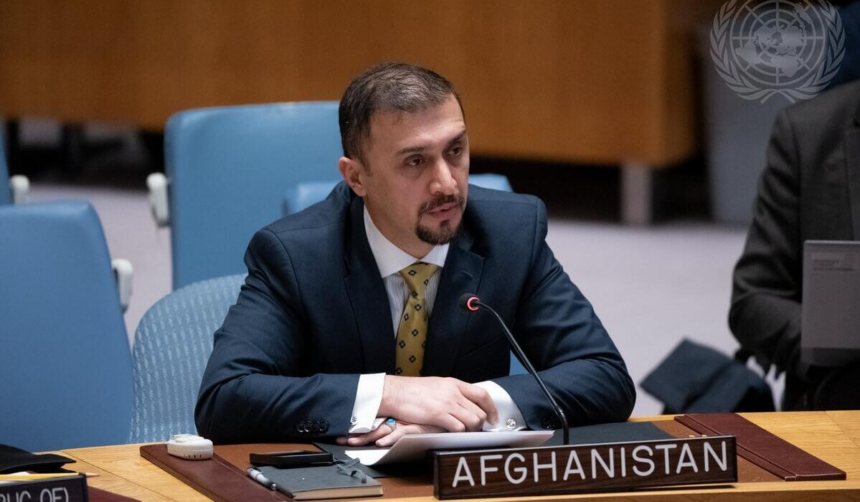RASC News Agency: Nasir Ahmad Faiq, Afghanistan’s permanent representative to the United Nations, has sharply questioned the Taliban’s claims of providing security, peace, and a general amnesty, highlighting the ongoing arbitrary arrests, torture, and targeted killings of former military personnel. In a recent post on the social media platform X, Faiq exposed the glaring contradictions between Taliban rhetoric and the grim reality on the ground. “How can anyone trust Taliban promises of security, peace, and ‘general amnesty’ while arbitrary detentions, inhumane torture, and targeted assassinations of former security forces continue unabated?” Faiq wrote. He underscored that the killing of unarmed, non-combatants not only violates core Islamic principles but also constitutes a flagrant breach of international humanitarian law and fundamental norms of human conscience.
Faiq condemned the Taliban’s governance as a stark embodiment of “tyranny, injustice, hostility towards knowledge and culture, and systematic deprivation of women and girls from their basic rights.” His statements echo mounting reports from credible international sources that document the sustained repression and targeting of former military and security personnel across multiple Afghanistan’s provinces. The British newspaper Daily Telegraph, citing field sources, recently reported that the Taliban have identified, arrested, and in some cases secretly executed numerous soldiers, officers, and intelligence operatives from the previous government. According to the report, “blacklists” compiled by the Taliban have served as the basis for systematic operations aimed at identifying and eliminating individuals in provinces such as Balkh, Takhar, Kandahar, and Nangarhar.
Meanwhile, findings from the United Nations Assistance Mission in Afghanistan (UNAMA) indicate that Taliban forces have detained and tortured former government soldiers, media activists, and women. Although Taliban spokespersons have acknowledged some arrests, they dismiss these actions as unauthorized acts carried out by rogue commanders and fighters, denying them as official policy. Since the Taliban’s seizure of power in August 2021, the group pledged a general amnesty for all former government employees, particularly military personnel. However, since then, dozens of well-documented reports have emerged detailing blatant violations of this promise. Alongside targeted killings, systematic torture, arbitrary detentions without trial, and threats against families form a disturbing pattern in the Taliban’s treatment of former security forces.
While this campaign of repression continues unabated, international human rights organizations have repeatedly called for independent investigations and accountability from the Taliban. Yet, the global community’s continued silence and inaction have raised profound concerns about the recurrence of past atrocities in Afghanistan. In closing, Faiq warned that the international community must not be deceived by the Taliban’s superficial promises and must insist on their accountability regarding human rights obligations.






